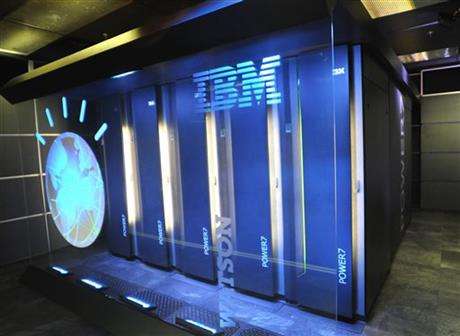IBM Starts New Precision Medicine Program
 IBM is using its cognitive computing service Watson to help doctors at 14 prominent cancer clinics in the U.S. and Canada, including the BC Cancer Agency in British Columbia and the Duke Cancer Institute in North Carolina, to analyze cancer DNA and figure out the best possible treatments for patients, reports Reuters.
IBM is using its cognitive computing service Watson to help doctors at 14 prominent cancer clinics in the U.S. and Canada, including the BC Cancer Agency in British Columbia and the Duke Cancer Institute in North Carolina, to analyze cancer DNA and figure out the best possible treatments for patients, reports Reuters.
The computer processing giant’s plan is part of the growing interest in precision or personalized medicine, an area where data will play a key role in forming customized disease treatments for individual patients.
Here’s how IBM’s program will work:
• Phase 1: Physicians upload a genetic fingerprint of the tumor to Watson.
• Phase 2: Watson will identify the specific mutations that caused the tumor to grow.
• Phase 3: the supercomputer will scan through a trove of data regarding clinical trials and approved drugs to pinpoint the best medication for treating these mutations.
Popular Mechanics notes researchers have found that they could potentially treat or cure diseases if they had a better idea on what the actual mutations inducing cancer were.
Data would play a key role in figuring out this puzzle, but it used to take weeks to sort through all the information to find the best drugs for targeting these abnormalities.
Read More: President Obama Reveals Details About Precision Medicine Project
Watson can accomplish this task in a manner of minutes, especially due to its large database of scientific papers and clinical trial statistics.
Still, chemotherapy and radiation remain the traditional forms of cancer therapy so it is unclear how effective a data-driven approach will be, according to Reuters.
Nothing has been disclosed regarding how much money the cancer centers would be paying to IBM along with no indication of the amount of patients being helped through this collaboration.




